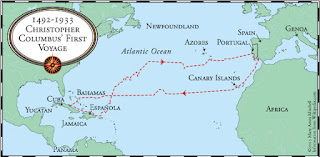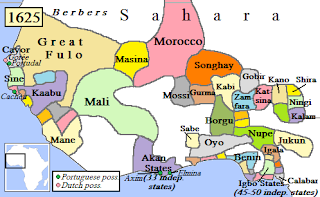10 historical timeline of Lagos
Nothing supersedes history in the past experience of humans, and as historical occurrences is so important for the upcoming generation, the usefulness cannot be neglected.
Today on we explore 10 historical occurrences that made Lagos, Nigeria the king of all Nigeria States from the facts that Lagos state was usurped by the Oba of Benin in the late 13th century to the fact that Lagos states only becomes part of Nigeria in 1914. Let go down the Timeline in history.

1300-1400AD: CITING OF HUMAN
Long before 13th century, humans have been inhabiting the present site of Lagos state and the people the who got credited for that are a partition of Yoruba ethnicity CALLED THE AWORIS.
EARLY-1400AD. PEACE TREATY
At some point when the 14th century is still young, when the immersive Benin Empire was a real dominant force to reckon with, the Oba of the Benin Empire, received a formal complaint submitted to him about disturbances along the trade routes on hearing such the king sent a sea expectation to the coast of Lagos to take the city under the Empire; but the Aworis decline and fail to engage the force of the Benin which consist of chiefly of traders. On having that the Oba of Benin then again sent a war fleet, frontier by a prince to request explanation for refusal to engage. The two tribes later reach a material agreement for the Benin prince to be the leaders that abating violence.
1472:LAGO DE KURAMO

The city of Lagos as it is known now was created in 1472 by the Portuguese explorer RUI DE Sequiera, when he visited the city as one of the slave trade stops in west Africa .RUI de sequiera reached the coast of present Nigeria in 1472 he baptized the lagoon in Lagos and give it the name LAKE WE HEAL and game the city LAGOS.
1502: Slave trade market Established

The iconic vlekete market in Badagry was established in 1502;the slaves market got its supplies from hinter land as far as umuahia(present day Abia state). the market was the biggest on the coast ,serves as meeting place for Europeans buyers meeting African against to do their business in the interval of two days and every two days over 1,000 slave, are auctioned in exchange for starts each as umbrella, cannon, whiskey dishes, mirrors e. t. c.
1807-ABOLITION OF SLAVES TRADE AND BRITISH ADVANCEMENT
Oba kosoko of Lagos 1845-1851 was the 12th Oba of Lagos who was dethroned by the British. Oba kosoko was went to abolish slave trade on the instruction of the British; so the British then collude with a tough candidate for Oba ship Oba Akintoye, who promised the British that he will Abolish slave trade if the British could help him ascend the throne. After he became king Lagos stopped sending taxes to the Benin Kingdom as a direct instruction from the British who claimed since the Benin Empire also pays tributes to the British Empire; therefore giving the British more advance into the affairs of the state and that spurs the Ages of colonization.
1884: BERLIN CONFERENCE & PARTITIONING
- Berlin conference
- flag of the Lagos colony
1914-191: amalgamation and seat of power
- lord fredick lugard and flora shaw
- Enter a caption
The protectorate in Nigeria was amalgamated in 1914. Since then the Lagos state has been the seat of poorer, till 1991 when the Federal Capital Territory was moved to Abuja
1947: MURITALA MUHAMMED AIRPORT
 The Murtala Muhammed international airport was by far the mos famous landmark in Nigeria from the offset of the colonial era to this ages; and that popularity is what earned it a place on this list. the MMA for short was established during the years of the second world war. the west African airways corporation; it was originally named Lagos international airport, and was later renamed after a former Nigerian military head of state; general Murtala Muhammed in the 1970s. the aiport makes Lagos popular as it serves over 6,273,545 passengers as at 2010, and that statistics is bound to increase yearly.
The Murtala Muhammed international airport was by far the mos famous landmark in Nigeria from the offset of the colonial era to this ages; and that popularity is what earned it a place on this list. the MMA for short was established during the years of the second world war. the west African airways corporation; it was originally named Lagos international airport, and was later renamed after a former Nigerian military head of state; general Murtala Muhammed in the 1970s. the aiport makes Lagos popular as it serves over 6,273,545 passengers as at 2010, and that statistics is bound to increase yearly.1960: independence
 far back to 1914 Lagos has been the centre for all international and domestic presence, cutting across all trades and businesses, Lagos is a multi-ethinical city as far back as 1960 when the country got her independence. Lagos hosted the ceremony and welcome dignitaries from all over the world in a ceremony which is arguably the greatest in the history of Nigeria.
far back to 1914 Lagos has been the centre for all international and domestic presence, cutting across all trades and businesses, Lagos is a multi-ethinical city as far back as 1960 when the country got her independence. Lagos hosted the ceremony and welcome dignitaries from all over the world in a ceremony which is arguably the greatest in the history of Nigeria.1967: state creation
 After independence Nigeria system of government provided for regional system of state partitioning and Lagos was ceded with the former western region along with cities like Badagry, Agege and ikeja. on may 27 1967 the state creation and transition provisional decree No. 14, which re-constructed the country into a federation of 12 states, which includes Lagos .
After independence Nigeria system of government provided for regional system of state partitioning and Lagos was ceded with the former western region along with cities like Badagry, Agege and ikeja. on may 27 1967 the state creation and transition provisional decree No. 14, which re-constructed the country into a federation of 12 states, which includes Lagos .
#EKO ONI BAJE







Comments
Post a Comment